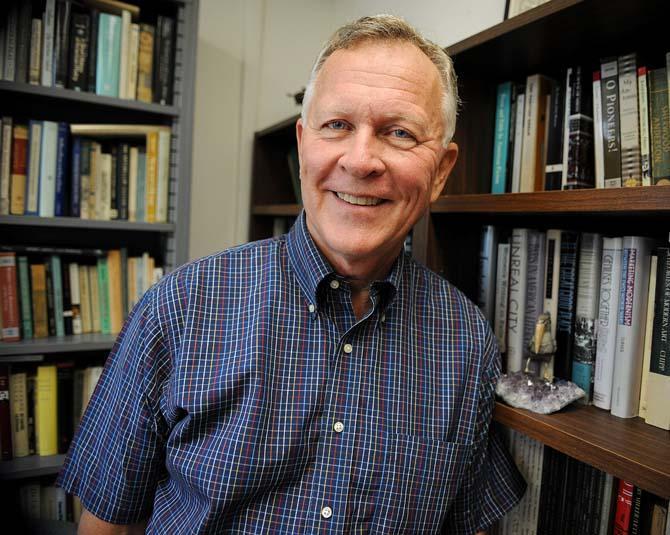University Boyd professor J. Gerald Kennedy has helped unveil part of the personality of a famous American author by being the senior advisory editor for the second volume of “The Letters of Ernest Hemingway.”
The book, released this month, compiles personal and professional letters written by Ernest Hemingway between 1923 and 1925.
Kennedy said the compilation of these letters is unique because they display a lighter side of Hemingway while, at the same time, showing the deep, personal connections he had with other writers in Paris and with his father.
While reading through these letters, Kennedy said he often came across crude, even lucrative laguage and a few accounts of writer rivalry. Additionally, many of the letters to Hemingway’s father collected in the book were dated only a few years before his father’s suicide, Kennedy said.
Kennedy also wrote the introduction for the book and has served as a member of the Hemingway Foundation and Society Board for nine years.
He said he was partially in charge of reading through the letters after they had been transcribed to note what was significant within the letters. The span of time when these letters were written was important because it was the beginning of Hemingway’s professional writing career, Kennedy said.
Most of the work transcribing the letters is based out of Pennsylvania State University, where Kennedy said students type out the handwritten letters to the best of their ability. Kennedy then makes sure every word is transcribed correctly.
The entire meaning of a sentence could be obscured if one word is inaccurate, he said.
Kennedy said he, along with the other editors, is able to date specific and important instances in Hemingway’s life based on simple context clues within the text. This gives a clearer representation of what Hemingway and American writers he socialized with experienced while Hemingway was in Paris, Kennedy said.
Some of the letters Kennedy compiled for the book had never been read by anyone and revealed Hemingway’s personality like never before, Kennedy said.
He said similar work will be much more difficult with the expansion of technology for future generations. Now, emails, tweets and Facebook statuses will have to be tracked down years after they were published in order to look into the lives of famous figures, rather than collecting written letters or reading someone’s journals.
“Future biographers will have their work cut out for them,” Kennedy said.
“I would love to see students from the beginning [of the semester] use the databases.”
Professor edits book of letters by Ernest Hemingway
October 15, 2013
Professor Gerald Kennedy is one of the editors for The Letters of Ernest Hemingway Vol. 2.





